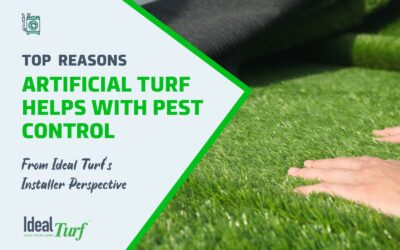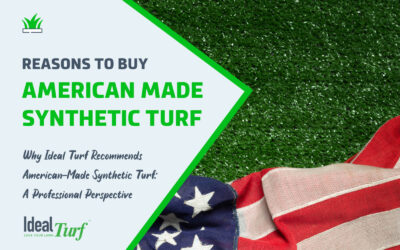Is Artificial Grass Worth The Money? Is It A Good Investment?

It’s no secret that artificial grass costs more than a regular lawn, but is artificial grass worth the money?
However, natural grass requires much more maintenance than synthetic turf—and the cost in time and money for weeding, mowing, edging, watering, and fertilizing adds up quickly.
Faux grass looks beautiful year-round without any of the maintenance required by natural grass lawns, but is artificial grass worth the money?
In this article, we’ll go over some of the advantages that artificial grass has over natural grass and break down some of the numbers to try to help you answer the questions:
Is artificial grass worth the money?
Is artificial grass a good investment?

How to Determine: “Is Artificial Grass Worth The Money?”
When considering an artificial grass installation, it’s important to consider what you value and why you’re thinking of installing artificial grass.
Fake grass can be used in a variety of applications, both indoor and outdoor, in everything from playgrounds to dog runs to balconies, but for the purposes of this article, we’ll be focusing on artificial grass lawns & landscapes.
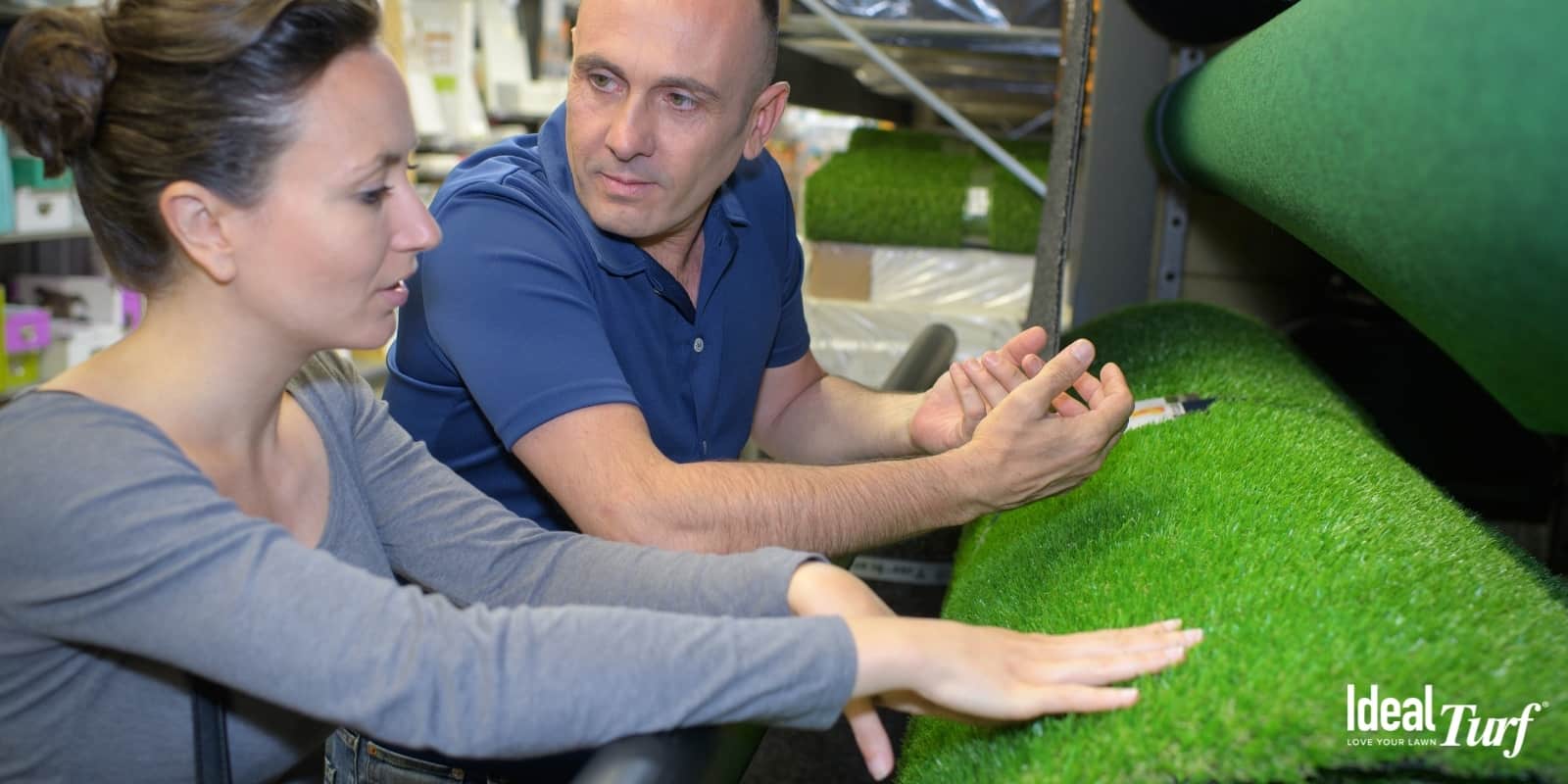
Why Do Homeowners Choose to Install Artificial Grass?
Artificial grass offers several advantages over natural grass.
The most common reasons that homeowners choose to install an artificial grass lawn are:
- Save time and money on lawn maintenance
- Reduce their water bill
- Decrease their impact on the environment
- Increase their home’s value
- Create a dog-friendly backyard
- The neighbors have it, and it looks incredible
The versatility of manufactured grass means that you’ll have more than a dozen residential artificial turf applications to consider for your home.
Residential properties aren’t the only place turf can be installed, there are plenty of commercial fake grass applications as well.
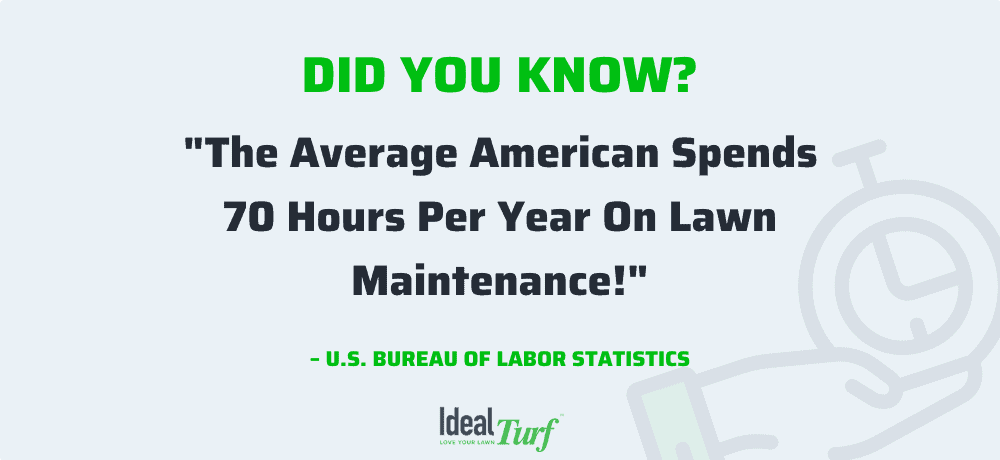
1. Save Money & Time on Lawn Maintenance
The cost structures for fake grass versus real grass are quite different.
Most of the costs of artificial grass are upfront with the installation.
To maintain a synthetic lawn, you’ll need to fluff or power brush it once or twice a month and rake up the leaves/debris as needed.
You may also need to reapply infill once a year.
If you have pets that use the lawn, you should also hose the turf down once a week to get rid of any residual urine.
All told, the cost in time and money for maintaining an artificial lawn is quite low.
Natural grass, on the other hand, is much cheaper to install but is costly to keep — in both time and money.
The average American homeowner spends 70 hours per year on lawn maintenance.
That’s almost 9 workdays!
Some of us don’t even get that many vacation days!
In addition to spending long, hot weekend hours caring for your lawn, you get to pay for the privilege.
Here’s a breakdown of the annual equipment, fuel, and chemical costs to maintain a 1,000 square-foot artificial lawn versus a natural grass lawn over a 25-year period.
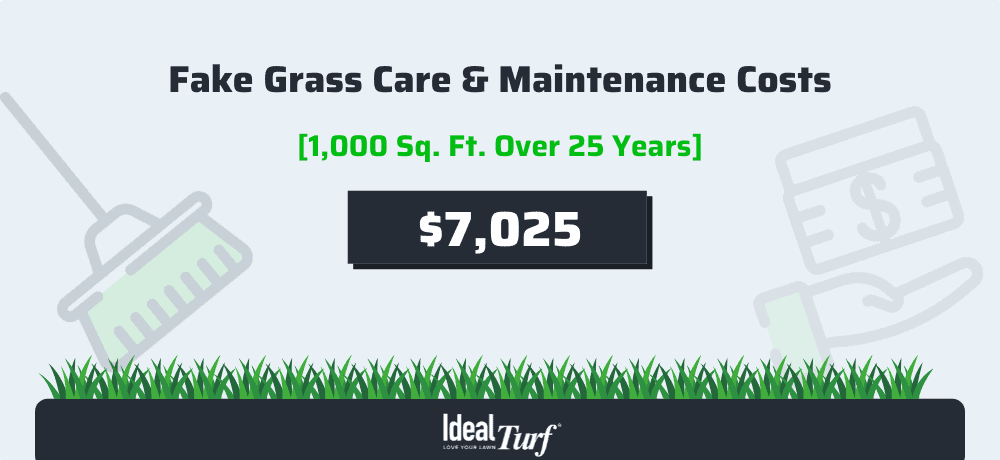
Artificial Grass Maintenance Costs
Power brushing: $175
Spraying w/ hose: $6 a month (0.25 inches bi-weekly) = $72 annually
Infill replenishing: $100 minimum (annually)
Total Annual Costs: $281
Total 25-Year Costs: $7,025
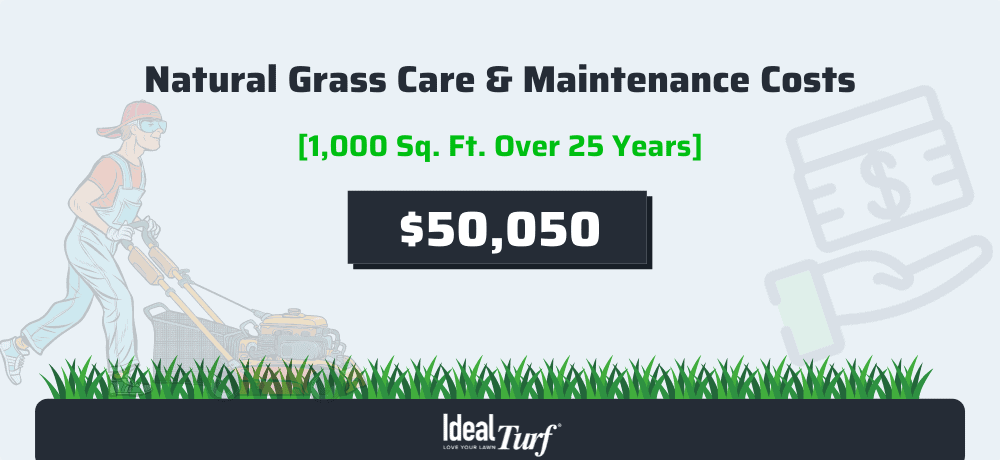
Natural Grass Maintenance Costs
Mowing/edging: $780 annually ($30 per week for 6 months)
Spring/fall cleanup: $100
Fertilizing: $80
Aeration: $70
Weed abatement: $35
Sprinkler repair: $180
Leaf cleanup : $190
Watering: $567 (assuming watering for 6 months)
Total Annual Costs: $2,002
Total 25-Year Costs: $50,050
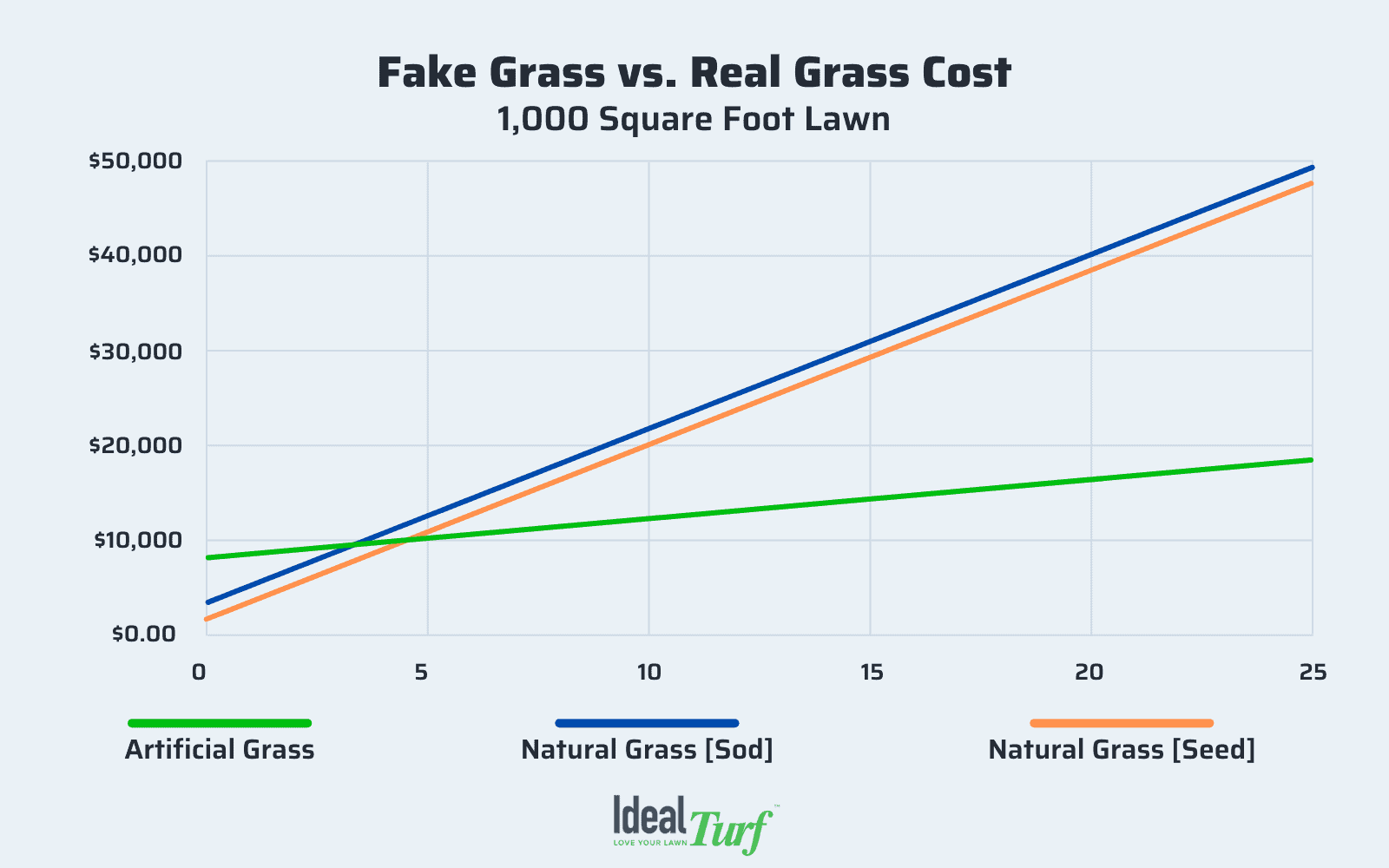
As you can see in the graph above, natural grass is significantly more expensive over time than fake grass.
If saving money is the main motivating factor of your choice, then artificial grass is the clear winner.
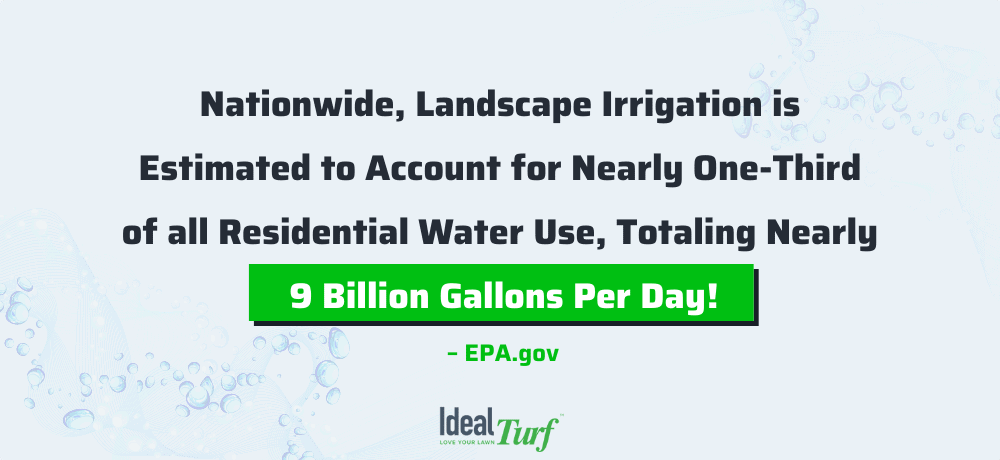
2. Conserve Water
Did you know that 9 billion gallons of water are used in the U.S. everyday just to water lawns?
About half of that is wasted due to overwatering and inefficient irrigation methods.
The savings on water alone makes artificial grass worth the money.
While it does require a weekly/biweekly spray down to remove dust, pet urine, and debris, the money you’ll spend on water for an artificial lawn is a fraction of what you’d pay for a natural grass lawn.
A 1,000 square-foot natural grass lawn will need 623 gallons of water per week for at least 6 months out of the year.
By contrast, an artificial grass lawn needs just 78 gallons per week (or 155 gallons for a biweekly hose-down).
During the drought years that are so common in Texas, it’s a great relief to know that regardless of any water restrictions, your lawn will still look fabulous.
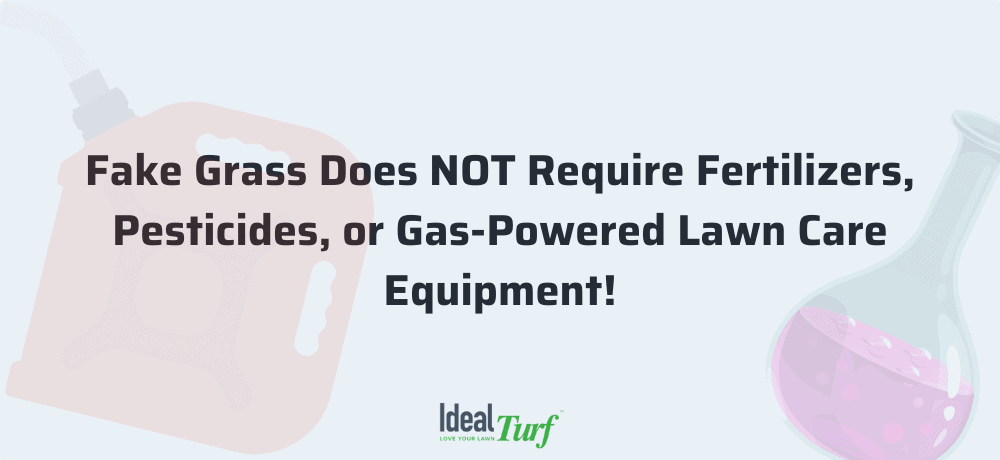
3. Help the Environment
Contrary to common myths about artificial grass being bad for the environment, the opposite is actually true.
Many people don’t realize how much damage a beautiful, green lawn can do to the environment.
The EPA estimates that lawnmowers account for 5 percent of America’s pollution each year — and that doesn’t even account for edgers or weed eaters.
A push mower running for one hour puts out as much pollution as a car would generate if it drove 350 miles.
In addition to the air pollution, pesticides and fertilizers can seep into groundwater and wreak havoc on streams and rivers.
Several common lawn chemicals have been known to cause algal blooms and are toxic to fish and even pets.
The constant upkeep of the traditional American natural grass lawn is costly to the environment.
That’s why we included installing artificial grass in our list of eco-friendly home tips.
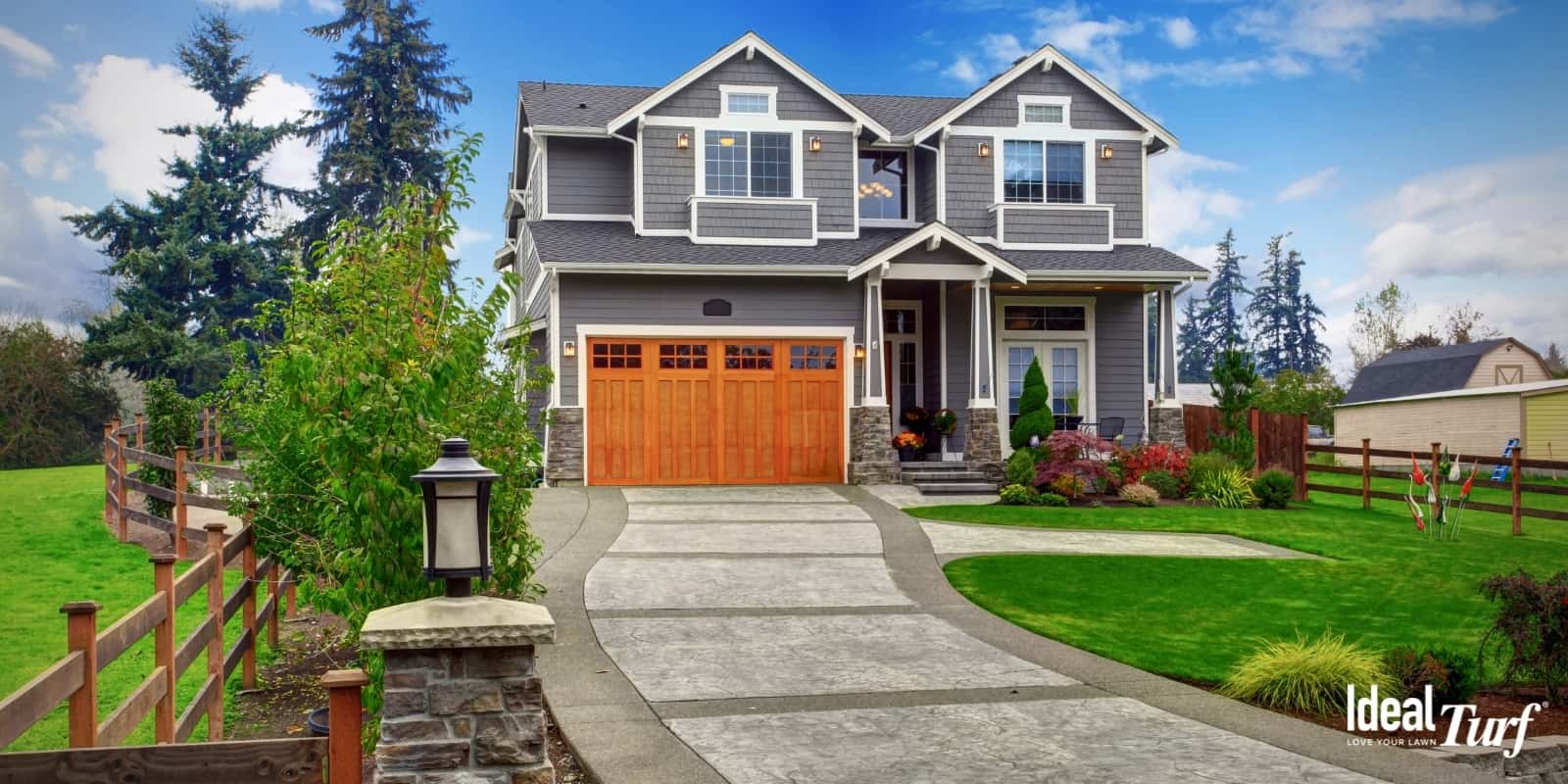
4. Increase Your Home’s Value
Artificial grass will boost your home’s value, so you’ll get back some of the installation costs you invest in a synthetic lawn in the form of home equity.
Homes and Gardens states that “as a rough guide, a nicely landscaped garden that is low maintenance can add up to 10% to your home’s value – that’s potentially an extra $100,000 on a $1 million home.”
Buyers are as eager as you are to enjoy the benefits of a perfect, low-maintenance yard, so having a synthetic grass lawn will definitely give your home an edge when it comes time to sell.
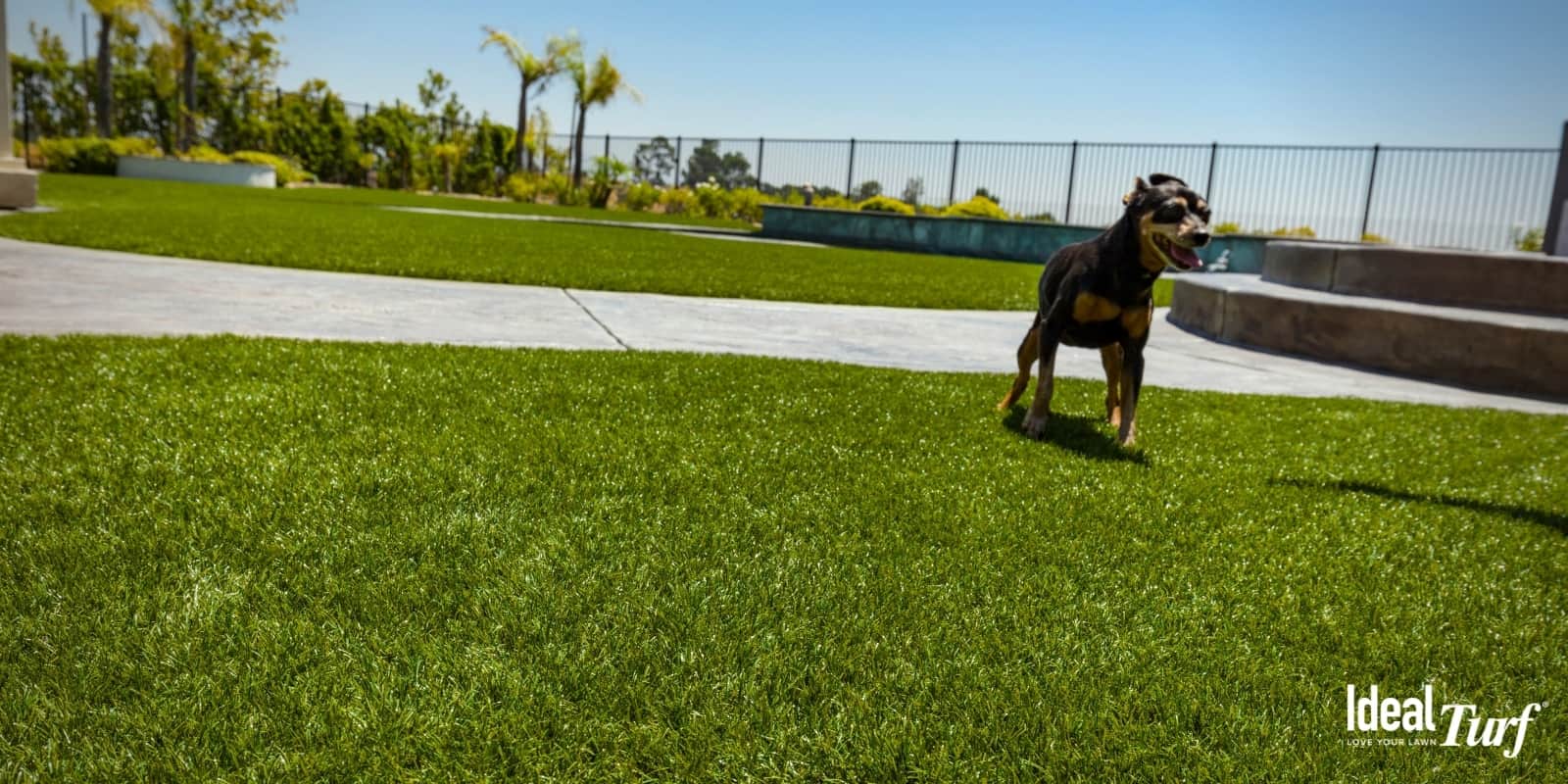
5. Create a Dog-Friendly Backyard
Natural grass doesn’t hold up well to the abuse that dogs dish out.
Your pooch creates brown urine spots, digs holes, wears paths along fences, and tracks mud through your house.
There’s little you can do to prevent dogs from destroying a natural grass yard.
Installing fake grass for dogs will transform your natural grass lawn into a dog-friendly backyard that will last for years with minimal upkeep.
There are endless varieties of pet turf that are made specifically with dogs in mind.
The best setup for dogs and pets should include the following:
- Cooling infill to protect sensitive paws
- 100% permeable backing to allow urine to pass straight through the turf
- Antimicrobial agents to prevent bacteria and odors from building up
If you don’t want to replace your entire lawn, you can use artificial turf and fencing to create a designated pet area or dog run.
If you aren’t sure where to begin, we put together a buyer’s guide to the best artificial grass for dogs.

6. Your Neighbors Have it, and it Looks Incredible
Why do people spend hundreds of hours and dollars each year mowing, weeding, and watering their lawns?
Because they want to have the best-looking house in the neighborhood — or at least not be the neighbor with the ill-kept eyesore.
The secret is out — you can have your cake and eat it too with artificial grass.
More and more homeowners are enjoying a lush, beautiful, green lawn all year (regardless of droughts or floods) and reclaiming their weekends for more important things than mowing the yard.
If your neighbors already have artificial grass, you know first-hand how beautiful and realistic it looks.
Modern synthetic grass even has several different colors and textures to mimic the variation you see in natural grass.
You’ll never get a natural grass lawn to look as good as a synthetic grass lawn, so if you can’t beat em, join em!

Is Artificial Grass Worth the Money?
In our expert opinion, artificial grass is a smart investment that’s worth the money every time.
In the long run, a synthetic lawn will cost less money and time than a natural grass lawn.
It can stand up to wear and tear from pets, foot traffic, and kids and will look gorgeous for years to come.
As an artificial grass company, we might be a bit biased, but if you’ve read through this article and reviewed the pros & cons of artificial grass, then you likely agree with our recommendation.
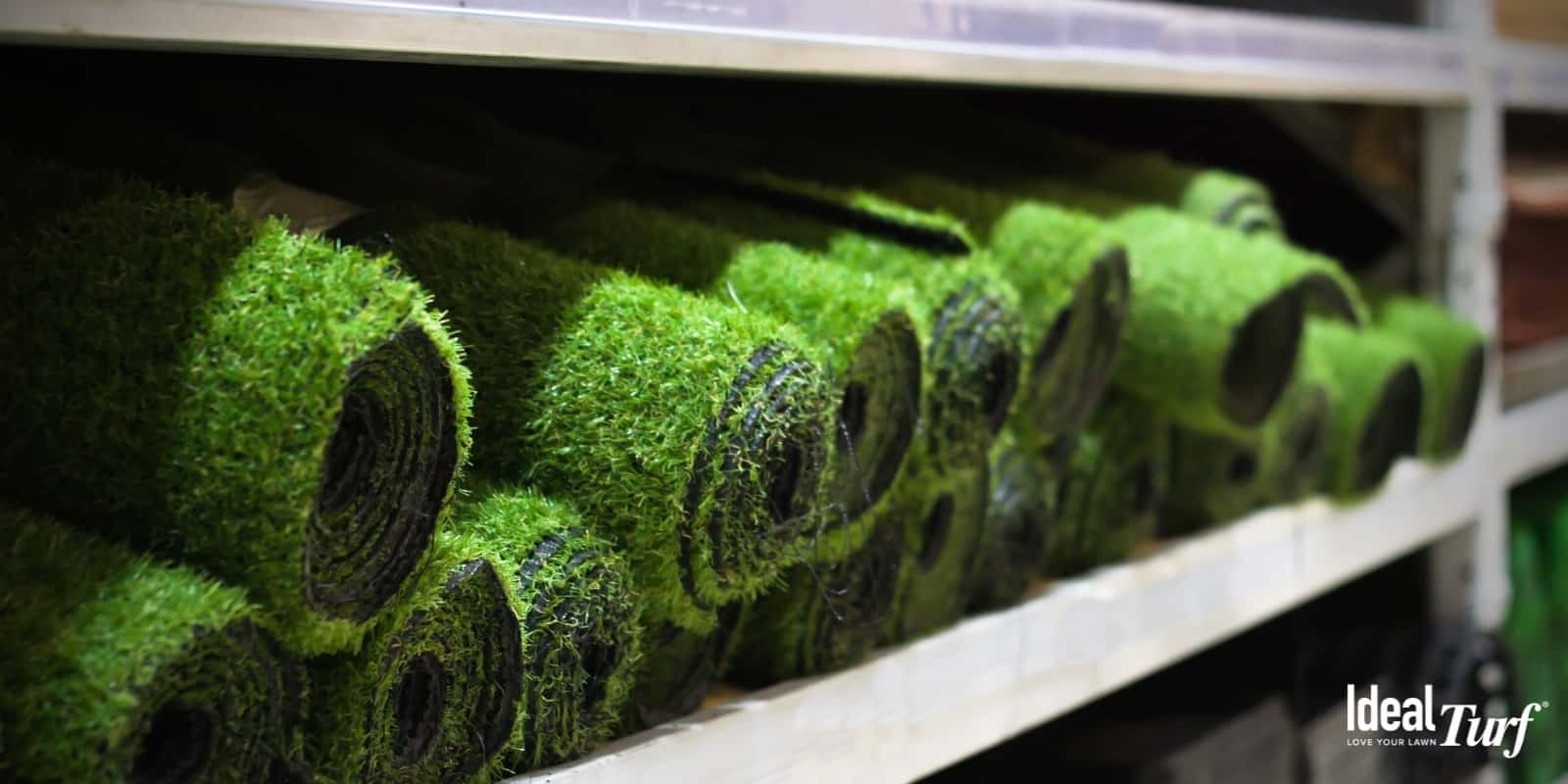
When Artificial Grass is NOT Worth the Money
Most of the time, changing out natural grass for fake grass is a slam dunk.
But there are a few instances where opting for a synthetic lawn might not make sense.
- You can’t afford it yet. Yes, artificial grass is cheaper in the long run, but if you can’t make the initial investment, it’s best to hold off until you’ve saved enough for the installation.
- You don’t plan to stay in your home. Because of the initial costs, it takes time for fake grass to pay for itself (3 to 6 years or so). If you plan on moving soon, wait to install your synthetic lawn until you find your new home.
- Your HOA/city ordinances don’t allow it. Although artificial grass improves curb appeal and housing prices, not all HOAs or city regulations permit you to have a synthetic lawn. Check the laws/rules in your areas before going forward.
- You enjoy yard work. A rare few people find mowing the lawn and caring for landscaping incredibly therapeutic. Others enjoy the exercise. If keeping your natural grass is a joyous spot in your life, by all means keep it!
Except for these few circumstances, artificial grass is a definite winner for your home.
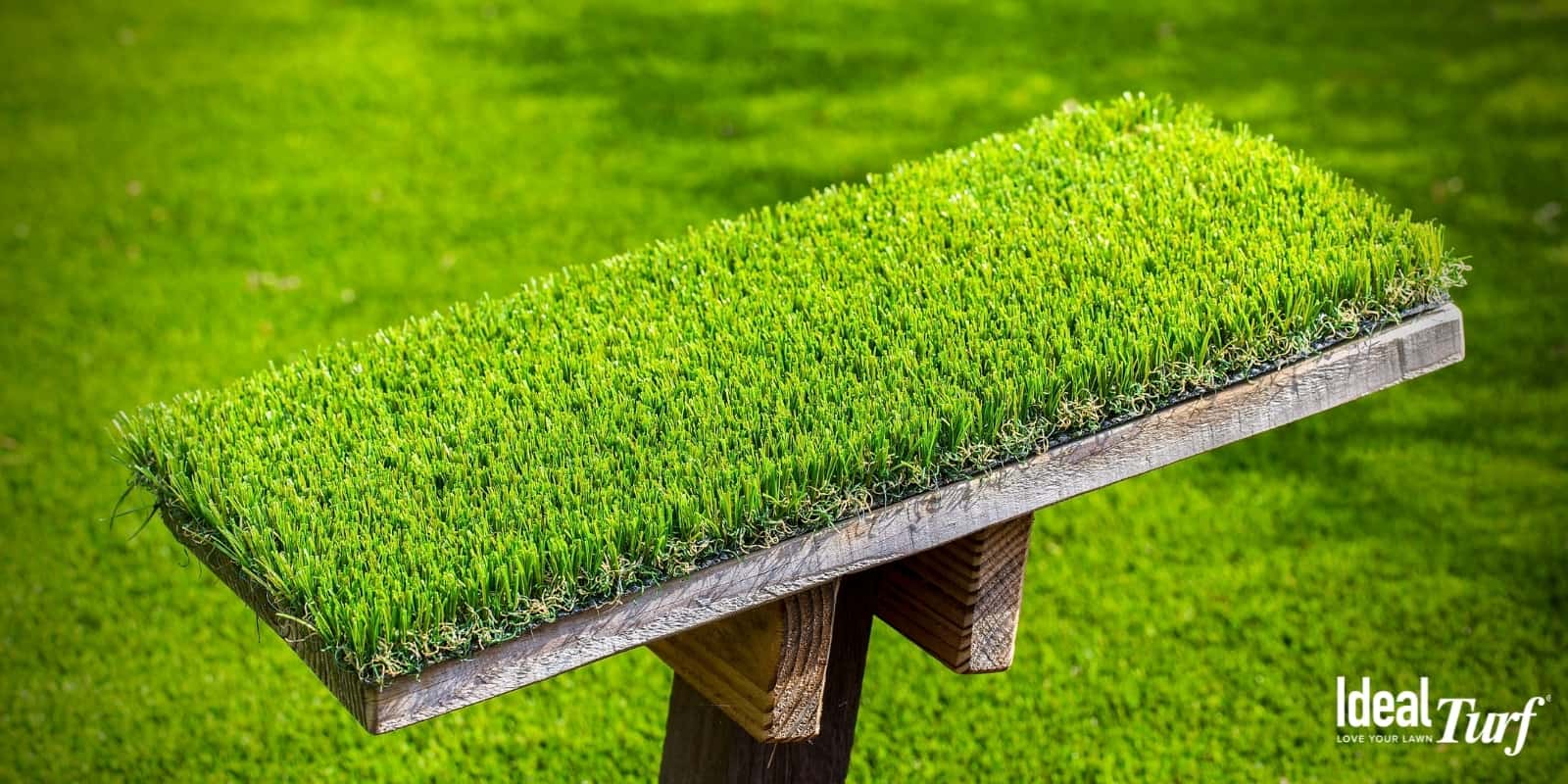
Ready to Invest in Artificial Grass for Your Home?
If you are ready to get started, we recommend you explore our website a bit.
There are a lot of specifics to understand about artificial grass, and the first step to creating a flawless, maintenance-free lawn is to educate yourself on the many features and options available.
Learn about:
We have artificial turf products for every situation, free quotes, and world-class customer support.
Let’s get an expert on your side to help you put together the perfect installation plan.
We have teams of the best artificial grass installers located throughout Texas and in Oklahoma.
At Ideal Turf, we truly believe artificial grass is worth the money, and we are happy to help you explore this decision by answering any questions you have before buying turf.
Get your FREE artificial grass design & installation estimate by clicking the “GET A QUOTE” button or feel free to give us a call at 800-204-4650.
Author: Tim Taylor
Recent Posts
- How Synthetic Turf Helps Keep Fleas and Ticks Out of Your Texas and Oklahoma Yard
- Porches, Patios & Personality: Creating Outdoor Spaces Texans Love
- Turn Your Backyard into a Golfer’s Dream: Custom Putting Greens by Ideal Turf
- Why Texas Pet Owners Are Choosing Pet-Friendly Artificial Grass from Ideal Turf
- Why More Texans and Oklahomans Are Turning to Artificial Grass for a Greener Future

